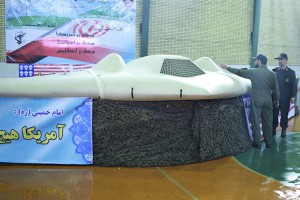 Last year, many people debated whether or not the Iranians had the wherewithal to hijack that US military drone which they were so proudly displaying afterwards.
Last year, many people debated whether or not the Iranians had the wherewithal to hijack that US military drone which they were so proudly displaying afterwards.
Well, wonder no more. Apparently a team from the University of Texas at Austin showed how it can be done using equipment that cost no more than a thousand bucks.
OK, you say, but this drone was using the non-encrypted civilian GPS signal. True… except that if you simply jam the encrypted signal, many military drones fall back (or at least, used to fall back) to using the civilian signal. (As designed, the encryption was primarily about preventing an adversary from using the high accuracy military GPS signal, not about preventing spoofing.)


